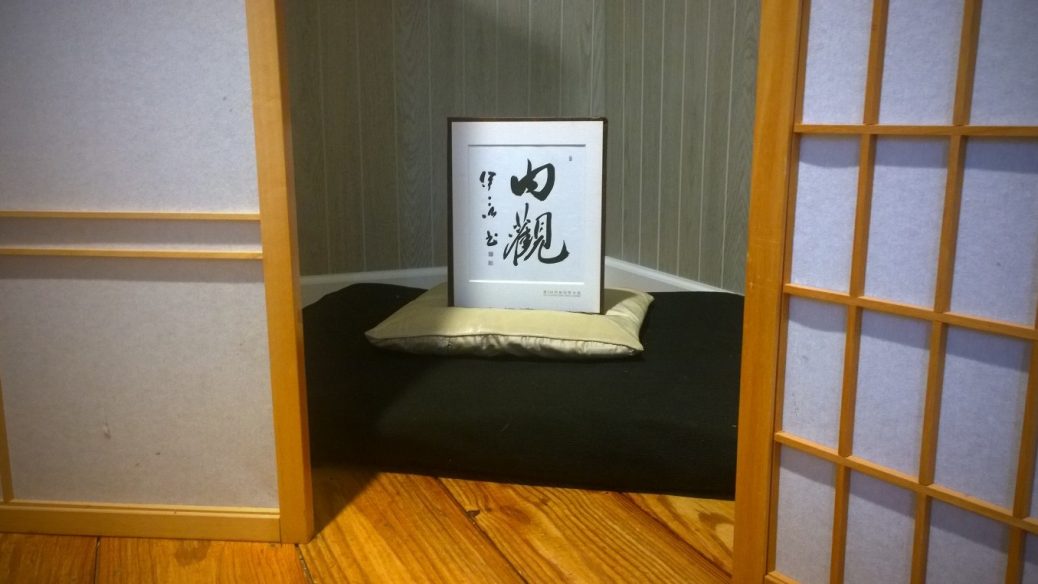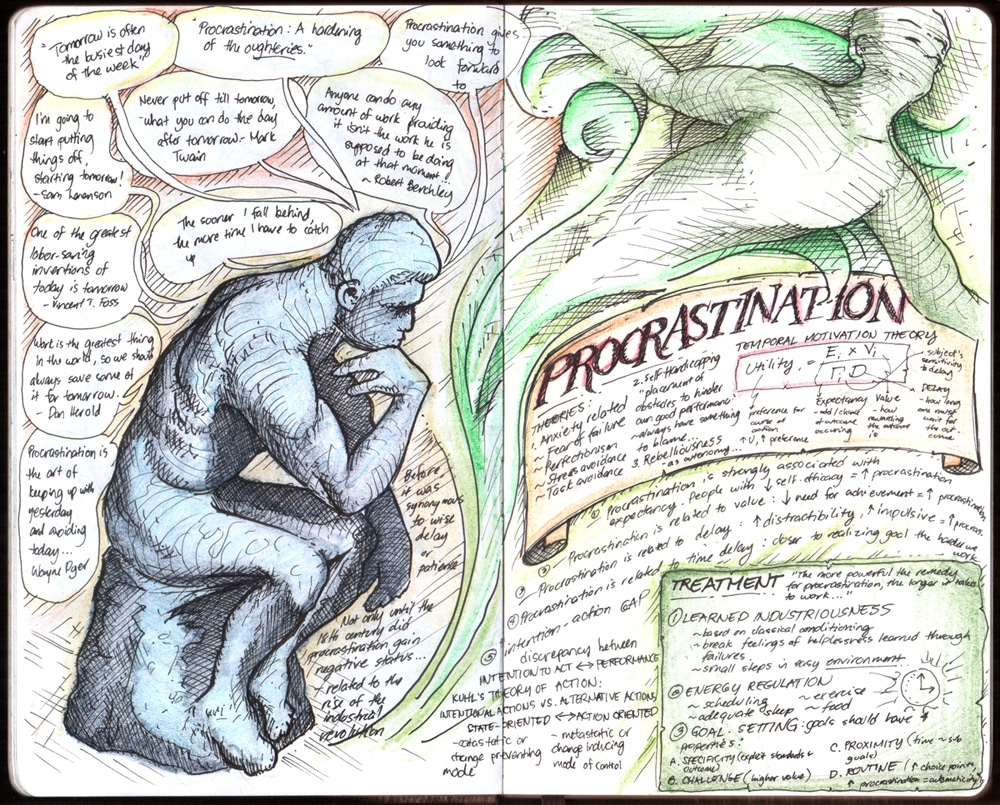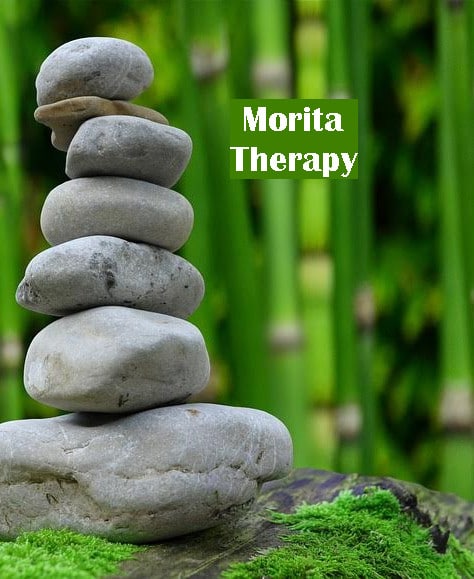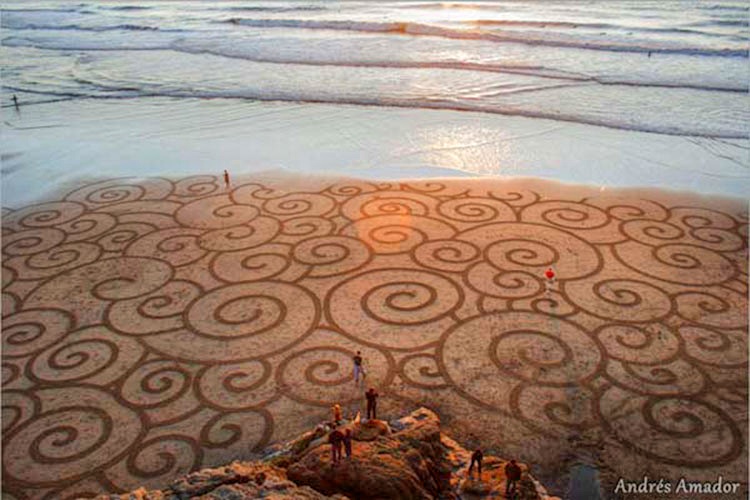This is our first full day of the Fall Naikan Retreat. It’s the 30th year I’ve had the privilege of conducting these week-long pauses where people can step back and take a look at how they have lived their lives. From the very beginning.
If you were a fly on the wall (a dangerous profession) what would you see?
Well, each room has a small area, about 4’x6’ surrounded by traditional Japanese shoji screens. Inside this space are cushions – square ones known as zabutons and round ones known as zafus. People can add additional cushions to make themselves comfortable. The space is known as a hoza (in Japanese, truth-space).
Retreatants spend most of the day in this space reflecting on their lives. What do they reflect on? Well, there is a different theme for each day. The idea is to go through your entire life and reflect on every year and every meaningful relationship.
The focus of the first day is one’s mother. That is the tradition in Japan where these retreats originated. I once wrote an essay called, “How to Solve the Problem of Your Mother.” Nearly everyone has a problem with their mother, though it varies dramatically. I had a problem with my mother all through my childhood. And through my twenties, as well. I couldn’t get along with her. I found her aggravating. She was constantly alternating between complaining and, well, . . . . complaining. She nagged me and criticized me. By the time I left for college I just didn’t want to have much to do with her.
Other people would say their mother was abusive. Or she was an alcoholic. Or unstable. Or neglectful.
There are people who arrive at this retreat with nothing but love and admiration for their mother. But that’s not the norm. The norm is people who have one problem or another in dealing with their mother. Historically, traditional therapy encourages people to see their mother (and father) from this perspective. How did our parents mess us up? Where did they fall short of our expectations?
Japanese Psychology comes from the opposite perspective. Your parents were imperfect, of course, but what kind of care, support and love did they give you, even if it was imperfect. When I did my first retreat in Japan in 1988, one of my exercises was to calculate the number of dirty diapers my mother changed for me from the time I was born. Here’s a clue: it’s a very high number.
The reflective process is structured in this type of retreat and revolves around a foundation of three questions:
- What did I receive from my mother during this period of time?
- What did I give to my mother during this period of time?
- What troubles and difficulties did I cause my mother during this period of time?
If there was a fourth question, can you guess what it would be?
There is no fourth question. We’re already good at that question. We don’t need additional practice.
Retreat participants are served meals in their hozas and eat privately behind the screens. We had some delicious oatmeal this morning with fruit and nuts, with hot coffee. Lunch consisted of an Asian curry-like soup with a small tempeh-salad sandwich. For dinner, well I don’t know yet what’s on the menu. But I’m looking forward to it.
There’s a work period each afternoon where everyone gets outside to do some work on our grounds. We have twelve acres and there’s always some kind of gardening, weeding or project to work on. If you walked around upstairs, where the Naikan participants’ rooms are, you would see framed maxims or quotes alongside the hot water thermos in the upstairs hall. The quote changes daily. Today’s is one of my favorites:
“Sometimes I go about in pity for myself, and all the while a great wind is bearing me across the sky.”
-
-
-
-
-
- Ojibwa (Native American) Saying
-
-
-
-
It’s a long day for everyone. But it’s a day where you are disconnected from everything – your email, your phone contacts, texts, bills, Facebook posts, your family, the news. You don’t have to cook or wash dishes. You don’t have to drive or go anywhere. Your only job is to pause, step back from your life and look, honestly and sincerely, at how you’ve been living your life.
Most people go for 50, 60 or 70 years without stepping back and truly reflecting on their lives. What would happen if you did this? For me, it changed my relationship with my mother. It solved my “mother” problem. I spent three days with her in August of 2015 in Chicago. Several months later I received a call at my home, in Vermont, informing me that she had died the previous night. Fortunately, after my Naikan retreat, my relationship with her changed. Our connection was different. I was able to see her through a different lens. I was able to appreciate her and express my gratitude to her. I was even able to see how difficult it was to have me as a son. I stopped trying to “fix” her and just tried to love her. We loved each other imperfectly. And we were both perfectly OK with that.
Tags: gratitude Relationships Self-reflection













